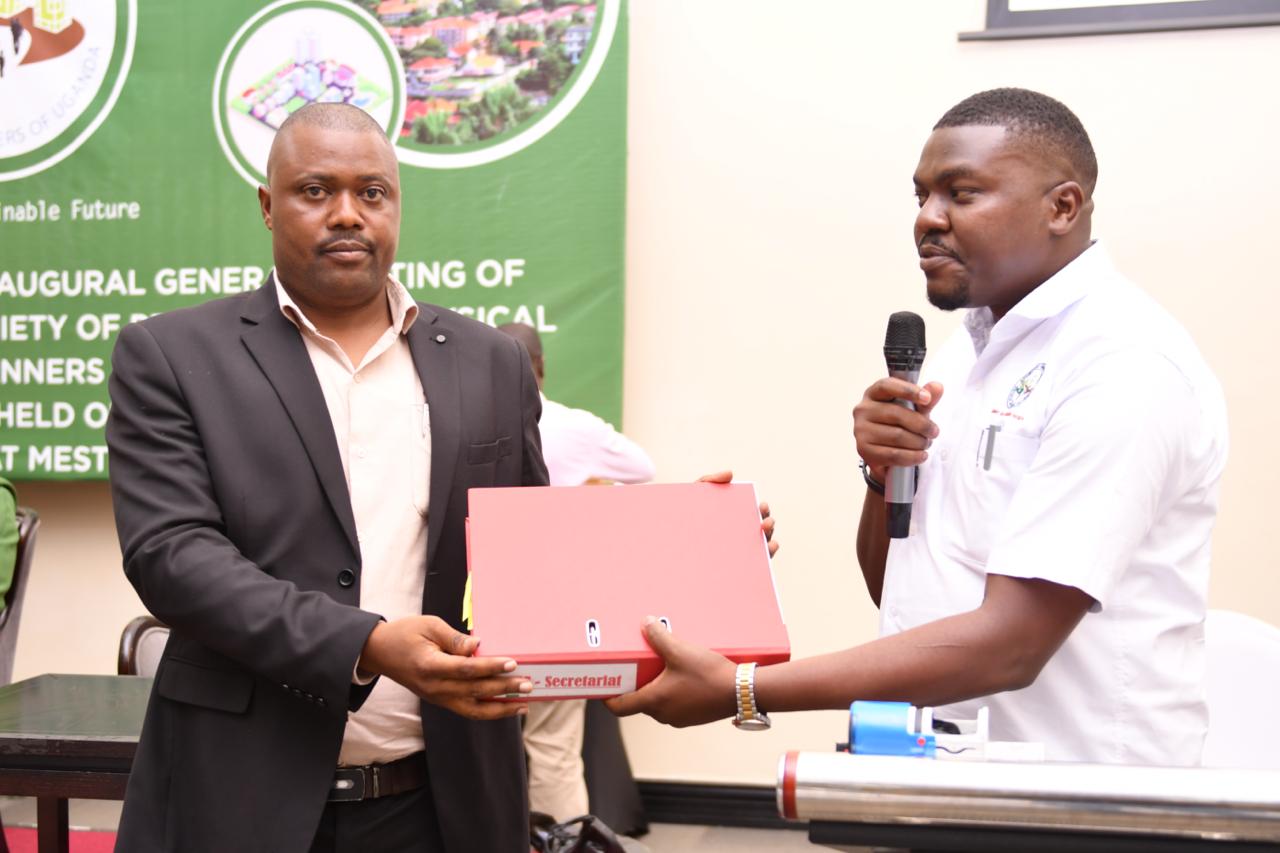URA tasked to sensitise traders on how Electronic Fiscal Receipting and Invoicing Solution (EFRIS) works to avoid demonstrations.

In January 2021, URA implemented EFRIS to tackle tax administration issues associated with business transactions and receipt issuance.
Since then, the authority has been trying to get the business community to adopt the system and Ugandans to get used to demanding fiscalized receipts. Despite success, reports indicate that some traders especially from KIKUBO Business lane have identified the system as double taxation
In response to this, traders in Kampala under their umbrella bodies, The Federation of Uganda Traders Association (FUTA), KACITA among others on Monday morning did not wait to stage a protest over the implementation of EFRIS.
- Traders complained about EFRIS as double taxation like they have been describing it, saying that they don't understand the automated sale records and levy system.
"We have written a lot of letters to our government and other authorities, including the Ministry of Trade, URA, Ministry of Finance, and other entities. We are complaining about EFRIS, high taxes, double taxation, VAT, everything," Noted John Kabanda, President of FUTA.
The Kampala City Traders Association (KACITA) has therefore asked Uganda Revenue Authority (URA) to sensitise traders on how the Electronic Fiscal Receipting and Invoicing Solution (EFRIS) operates
- According to KACITA Chairperson Thaddeus Musoke, the majority of the traders are only partially literate and have trouble understanding how complex systems like EFRIS operate.
"It needs someone who already has some IT knowledge. And the level of education of most of our members is low. We want to convince URA to give us more time," Musoke said
URA thinks that it's a technique of evading taxes, but that is not the case; people are scared of the system. They don't understand the system. So, URA has to get strategies of interesting our members to embrace EFRIS. The moment URA insists, more clashes will happen. We just appeal to URA; be slow, let us engage. Emphasizing Musoke
Through cooperative effort with the Private Sector Foundation Uganda (PSFU) Uganda Revenue Authority (URA) disclosed plans to establish an operating office in the Kikuubo business area aimed at educating traders about EFRIS services
The disclosure was made by URA Commissioner General John Musinguzi on Saturday during a joint press conference held at the PSFU offices in Nakasero.
- "The purpose of the office is to dispense services to the taxpayers like return filing, issuance of E-receipts, spreading awareness, and bridging any knowledge gap between traders and URA," he said.
- The involvement came at a time when traders downtown threatening to shut down their businesses and stage demonstrations in response to the URA's failure to resolve their grievances which finally happened yesterday Musinguzi responded to this as false allegations, he however attributed the issue of double taxation to middlemen. "There is nothing like double taxation. If anything, it is exploitation of traders by middlemen who call themselves container leaders shipping goods from abroad," Musinguzi responds
"When they bring in the container and they are assessed, let's say UGX 50 million, they then go and charge traders about UGX 100 million, and as such, they make off with excess monies," Musinguzi explained. Musinguzi further demystified the system, emphasizing that it is not a new tax but a technology that simplifies the collection of value-added tax (VAT) and aids traders in proper record-keeping and stock management, as well as issuing e-receipts and e-invoices.
Vice-Chairperson of PSFU Sarah Kagingo underlined the value of ongoing interaction in preventing interruptions and identifying long-term solutions. "When there are demonstrations and violence on the streets of Kampala, it's the business community that will suffer as their sales will drop and this in the long run will affect their compliance," Kagingo noted.
The Electronic Fiscal Receipting and Invoicing Solution (EFRIS) is an initiative under the Government Domestic Revenue Mobilization Strategy that was designed to manage the issuance and centralized tracking of all e-receipts or e-invoices, enforce the usage by all taxpayers required to improve business efficiencies, reduce the cost of compliance through improved record keeping among taxpayers and mitigate tax administration shortfalls while promoting efficiency.



.jpeg)






















































